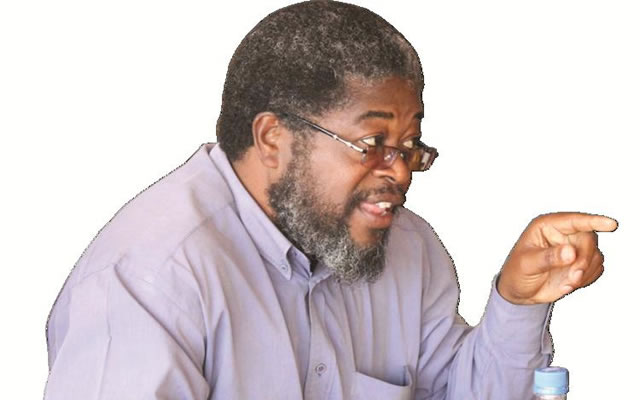Mtetwa defends JSC decision to hold public interviews

Fidelis Munyoro, Harare Bureau
A rabid critic of Government has sprung to the defence of the Judicial Service Commission’s decision to hold public interviews to choose the successor to outgoing Chief Justice Godfrey Chidyausiku.
Chief Justice Chidyausiku, who chairs the JSC, is set to leave the top judicial job end of this month, when his tenure ends.
He conducted public interviews to choose the next Chief Justice of the country last year as required by the Constitution. But this was after the JSC was advised by the executive authority to suspend the interviews as a process was underway to amend the Constitution on the appointment of the Chief Justice.
The amendment will give the President powers to appoint a person of his choice to lead the judiciary.
In an application filed in the Supreme Court on Tuesday, Harare lawyer Ms Beatrice Mtetwa wants to be joined in the matter as amicus curiae (a friend of the court).
A friend of the court assists a court by making submissions regarding questions of law or fact because of his or her interest in the matter.
The JSC is appealing against a ruling by High Court judge Justice Charles Kunofiwei Hungwe suspending a constitutional process on the way the Chief Justice is appointed. The appeal has been set for hearing on February 13.
Ms Mtetwa, who has particular interest in public litigation, constitutional law and human rights, says it is the duty of every lawyer to protect the Constitution of Zimbabwe, observe and support the rule of law.
In her brief argument, Ms Mtetwa contends that the interdict under appeal has a severe impact on the country’s constitutional democracy as “it threatens the supremacy of the Constitution”.
“The Constitution is the supreme law and it cannot therefore be suspended by a court of law granting an interdict on the basis of an amendment yet to be passed,” says Ms Mtetwa. “A court of law is not permitted to act unlawfully or interdict lawful conduct.”
She argues that the JSC is a constitutional body empowered by the Constitution to conduct public interviews to choose the Chief Justice.
Ms Mtetwa cited several sections of the Constitution to support her argument.
“A court of law cannot find that a part of the Constitution is unconstitutional,” argues Ms Mtetwa adding, “Neither can it suspend its effect. Only a Constitution can internally limit the operation or effect of its own provisions.”
She also took a dig at Justice Hungwe’s reasoning that the judicial appointment process under the current Constitution be suspended in favour of a process by retired judges.
“This argument runs contrary to the Constitution which in section 321 prohibits the JSC from delegating its power to make appointments to or to make recommendations or give advice on, any office established by …the Constitution,” she argues.
“The JSC is incapable of and prohibited from abdicating its responsibility to any agency, person or groups of persons.”
Ms Mtetwa also dismissed the contention by the respondent Romeo Taombera Zibani, a Univeristy of Zimbabwe fourth year student, that the involvement of the outgoing Chief Justice in the process of recommending the next Chief Justice compromised the process since he was familiar with the nominees for the position of Chief Justice.
Ms Mtetwa filed her application, despite the fact that rules regulating the admission of friends of the court in the Supreme Court have not been promulgated.
However, she is of the view that the court has inherent power to protect and regulate its own process.
The process to select the next Chief Justice has sparked a heated debate in both the legal and political circles in the country.
Parliament last week set in motion the processes leading to the amendment of the Constitution to give President Mugabe the prerogative of appointing the Chief Justice, his or her deputy and Judge President of the High Court without waiting for a list of candidates submitted by the Judicial Service Commission.
The august House also invited comments on the Bill from members of the public, while public hearings on the same will be conducted in due course.
Yesterday the Southern African Parliamentary Support Trust commended Parliament for sticking to the Constitution by inviting input from the public on the proposed amendment of Chief Justice Bill.
Southern African Parliamentary Support Trust executive director Mr John Makamure said the invitation by Parliament to the public to participate in the chief justice Bill was an indication that Parliament respects the Constitution.
The amendments seeks to change the supreme law by providing that the President appoints the Chief Justice, Deputy Chief Justice and Judge President of the High Court.











Comments